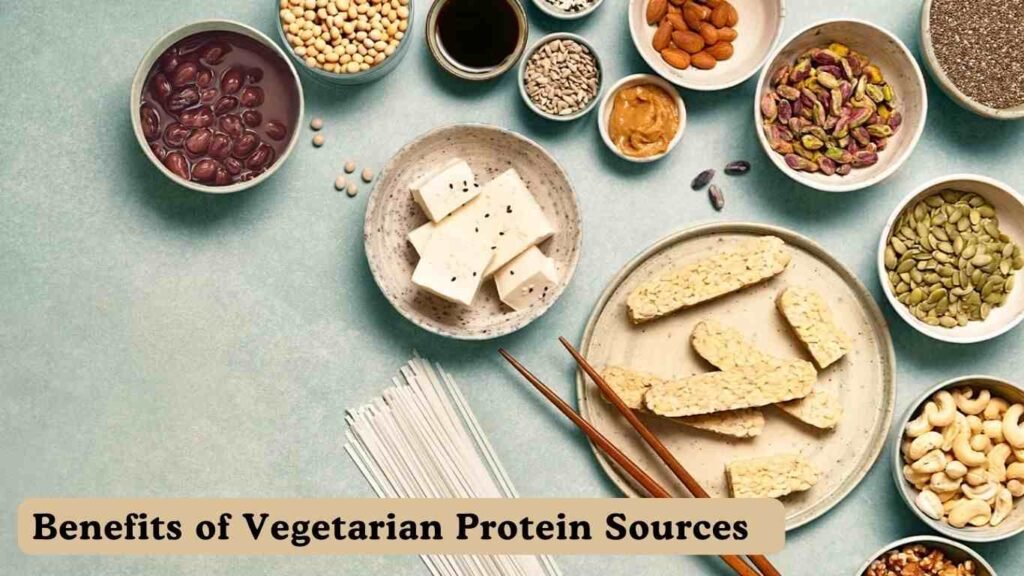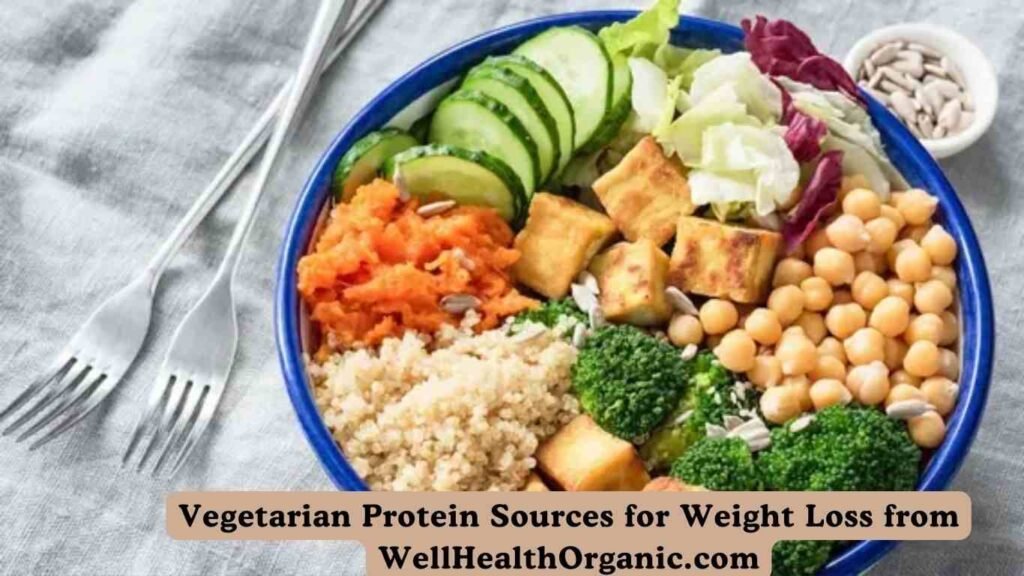In recent years, more people are embracing vegetarianism, whether for health, ethical, or environmental reasons. A vegetarian diet can offer numerous health benefits, but one concern that often arises is ensuring adequate protein intake. Protein is vital for numerous bodily functions, including building and repairing tissues, making enzymes and hormones, and supporting immune function. Fortunately, there are many delicious and nutritious high-protein foods available for vegetarians. At Wellhealthorganic, we emphasize the importance of incorporating these foods into your diet to enhance your health and well-being.
Understanding Protein Needs
The Recommended Dietary Allowance (RDA) for protein varies depending on age, gender, and activity level. Generally, adults should aim for about 0.8 grams of protein per kilogram of body weight. For those engaging in regular physical activity or strength training, protein needs may increase to 1.2 to 2.0 grams per kilogram. Therefore, it is crucial for vegetarians to choose protein-rich foods to meet their dietary requirements.
Top High-Protein Foods for Vegetarians
Here are some of the best high-protein foods that vegetarians can easily incorporate into their diets:
1. Legumes
Legumes, such as beans, lentils, and chickpeas, are excellent sources of plant-based protein. They are not only rich in protein but also packed with fiber, which aids digestion and helps maintain a healthy weight.
- Lentils: One cup of cooked lentils contains approximately 18 grams of protein. They can be added to soups, salads, or used as a meat substitute in dishes like lentil burgers.
- Chickpeas: A cup of cooked chickpeas provides about 15 grams of protein. They can be enjoyed in salads, hummus, or roasted as a snack.
- Black Beans: One cup of cooked black beans offers around 15 grams of protein. They can be used in tacos, burritos, or as a side dish.
2. Quinoa
Quinoa is a unique grain that is often referred to as a complete protein because it contains all nine essential amino acids. One cup of cooked quinoa has about 8 grams of protein. It can be used as a base for salads, bowls, or as a side dish.
3. Tofu and Tempeh
Tofu and tempeh are both made from soybeans and are fantastic sources of protein for vegetarians.
- Tofu: This versatile ingredient contains about 20 grams of protein per cup. It can be grilled, stir-fried, or added to smoothies for a protein boost.
- Tempeh: Tempeh is fermented soybeans and has approximately 31 grams of protein per cup. Its nutty flavor makes it an excellent addition to stir-fries, sandwiches, or salads.
4. Greek Yogurt
Greek yogurt is a creamy and delicious source of protein, with about 10 grams of protein per 100 grams. It can be enjoyed plain, mixed with fruits, or used as a base for smoothies. Opt for unsweetened varieties to avoid added sugars.
5. Cottage Cheese
Cottage cheese is another dairy product rich in protein. One cup of low-fat cottage cheese contains around 27 grams of protein. It can be eaten on its own, mixed with fruits, or used in savory dishes.
6. Nuts and Seeds
Nuts and seeds are not only rich in protein but also provide healthy fats and essential nutrients.
- Almonds: One ounce of almonds contains about 6 grams of protein. They make a great snack or can be added to salads and oatmeal.
- Chia Seeds: These tiny seeds pack a protein punch, offering about 5 grams of protein per 2 tablespoons. They can be added to smoothies, yogurt, or made into chia pudding.
- Pumpkin Seeds: Also known as pepitas, pumpkin seeds contain about 9 grams of protein per ounce. They can be enjoyed as a snack or sprinkled on salads and soups.
7. Edamame
Edamame are young soybeans and provide about 17 grams of protein per cup when cooked. They can be steamed and enjoyed as a snack or added to salads and grain bowls.
8. Seitan
Seitan, also known as wheat gluten, is a high-protein meat substitute that contains about 25 grams of protein per 3.5 ounces. It has a chewy texture and can be used in a variety of dishes, including stir-fries and sandwiches.
9. Nutritional Yeast
Nutritional yeast is a deactivated yeast that is rich in protein and often fortified with vitamin B12. It has a cheesy flavor and can be sprinkled on popcorn, pasta, or salads. Two tablespoons provide about 8 grams of protein.
10. Spirulina
Spirulina is a blue-green algae that is a complete protein, providing about 8 grams of protein per 2 tablespoons. It can be added to smoothies, juices, or health bars for an extra protein boost.
Meal Ideas to Boost Protein Intake
To help you incorporate these high-protein foods into your diet, here are some meal ideas:
Breakfast:
- Greek yogurt parfait: Layer Greek yogurt with fresh fruits, nuts, and chia seeds.
- Tofu scramble: Sauté crumbled tofu with vegetables and spices for a protein-packed breakfast.
Lunch:
- Quinoa salad: Combine cooked quinoa, chickpeas, diced vegetables, and a lemon-tahini dressing.
- Lentil soup: Make a hearty lentil soup with vegetables and spices for a comforting meal.
Dinner:
- Stir-fried seitan: Stir-fry seitan with a mix of colorful vegetables and serve over brown rice.
- Stuffed peppers: Fill bell peppers with a mixture of black beans, quinoa, and spices, then bake.
Snacks:
- Hummus and veggies: Enjoy hummus made from chickpeas with fresh vegetable sticks.
- Nut and seed mix: Create a homemade trail mix with almonds, pumpkin seeds, and dried fruit.
Benefits of Vegetarian Protein Sources

- Nutritional Value: However, plant proteins have other attributes and nutrients such as fiber vitamins and mineral which are important.
- Health Benefits: Plant protein is not related to so many health issues and the risk of chronic diseases such as cancer is relatively lower and, digestive problems are also minimized by having proteins from plant sources.
- Environmental Impact: Environmental stability and decreased utilization of resource to develop new products.
Types of Vegetarian Protein Sources
- Legumes: Beans, lentils and chickpeas are also sources of protein, fibers as well as iron.
- Nuts and Seeds: The nuts like almonds, seeds such as chia seeds and hemp seeds contain protein, helpful fats, and vitamins and minerals.
- Whole Grains: Quinoa, brown rice, and oats provide protein besides those carbohydrate foods with a high glycemic index.
- Soy Products: Tofu, tempeh and edamame are all good sources of proteins and contain all the amino-acids that are essential in our diet.
Vegetarian Protein Sources for Weight Loss from WellHealthOrganic.com

- High Protein, Low Calorie: One should try those foods that are rich in protein but are low in calories such as legumes, nuts, and seeds that help in muscle building and repair.
- Fiber-Rich Choices: Add the possible proteins that include whole grains and green vegetables like quinoa, spinach, and broccoli as they provide fiber that assists in digestion and boosts the satiety level.
- Plant-Based Protein Supplements: The plant derived protein based powder available at WellHealthOrganic, includes pea protein and soy protein. com, a perfect addition to a smoothie or even meal that will help to add protein without adding more fats.
- Balanced Meal Planning: Draw up a list of meals where vegetarian proteins are a part of the dish and are accompanied with fats and carbohydrates to ensure that they are a part of a meal that is so fulfilling that it will help one achieve his or her dream weight.
Indian Vegetarian Protein Sources
- Lentils (Dal): Commonly used in India, has high amount of protein and fibre.
- Chickpeas (Chana): Nutritious and many-sided pulses containing proteins as the ingredient of curry, salads, and popular snack, falafel.
- Paneer (Indian Cottage Cheese): Good source of protein and calcium commonly added in foods such as paneer tikka and palak paneer.
- Soybeans: Used in forms such as textured soy protein (TSP), which is in the form of soy chunks also known as soya nuggets, tofu mostly used in vegetarian preparations.
How to Intergrate Vegetarian Protein into Your Meal Plan
- Balanced Meals: Introduce one or more sources of protein with vegetables and whole grains.
- Snack Options: Nut containing trail mix or yogurt with seeds makes protein a convenient one.
- Recipe Ideas: Try options such as lentil soup, quinoa salad dish or tofu stir fry for your meals.
Addressing Common Concerns
- Protein Quality: Thus there is a capability of complementing the plant proteins to give a balanced profile of amino acids.
- Digestibility: Cooking also increase nutrient bioaccessibility because it improves digestion of the nutrient by breaking down the structure of the food.
Conclusion
Incorporating high-protein foods into a vegetarian diet is essential for maintaining energy levels, supporting muscle growth, and promoting overall health. By choosing a variety of protein-rich foods such as legumes, quinoa, tofu, nuts, and seeds, vegetarians can easily meet their protein needs while enjoying delicious meals.

.jpg_11.jpeg?w=696&resize=696,0&ssl=1)